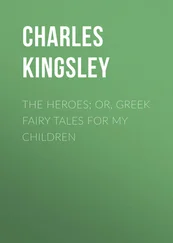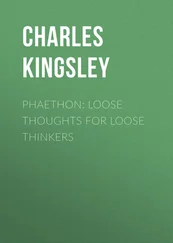Charles Kingsley - True Words for Brave Men - A Book for Soldiers' and Sailors' Libraries
Здесь есть возможность читать онлайн «Charles Kingsley - True Words for Brave Men - A Book for Soldiers' and Sailors' Libraries» — ознакомительный отрывок электронной книги совершенно бесплатно, а после прочтения отрывка купить полную версию. В некоторых случаях можно слушать аудио, скачать через торрент в формате fb2 и присутствует краткое содержание. Издательство: Иностранный паблик, Жанр: foreign_prose, foreign_religion, Философия, foreign_psychology, foreign_antique, на английском языке. Описание произведения, (предисловие) а так же отзывы посетителей доступны на портале библиотеки ЛибКат.
- Название:True Words for Brave Men: A Book for Soldiers' and Sailors' Libraries
- Автор:
- Издательство:Иностранный паблик
- Жанр:
- Год:неизвестен
- ISBN:нет данных
- Рейтинг книги:3 / 5. Голосов: 1
-
Избранное:Добавить в избранное
- Отзывы:
-
Ваша оценка:
- 60
- 1
- 2
- 3
- 4
- 5
True Words for Brave Men: A Book for Soldiers' and Sailors' Libraries: краткое содержание, описание и аннотация
Предлагаем к чтению аннотацию, описание, краткое содержание или предисловие (зависит от того, что написал сам автор книги «True Words for Brave Men: A Book for Soldiers' and Sailors' Libraries»). Если вы не нашли необходимую информацию о книге — напишите в комментариях, мы постараемся отыскать её.
True Words for Brave Men: A Book for Soldiers' and Sailors' Libraries — читать онлайн ознакомительный отрывок
Ниже представлен текст книги, разбитый по страницам. Система сохранения места последней прочитанной страницы, позволяет с удобством читать онлайн бесплатно книгу «True Words for Brave Men: A Book for Soldiers' and Sailors' Libraries», без необходимости каждый раз заново искать на чём Вы остановились. Поставьте закладку, и сможете в любой момент перейти на страницу, на которой закончили чтение.
Интервал:
Закладка:
And do not your own hearts echo these thoughts at moments when they are quietest and purest and most happy too? Have you not said to yourselves—“Those Bible words are good words. After all, if I were like that, I should be happier than I am now.” Ah! my friends, listen to those thoughts when they come into your hearts—they are not your own thoughts—they are the voice of One holier than you—wiser than you—One who loves you better than you love yourselves—One pleading with you, stirring you up by His Spirit, if it be but for a moment, to see the things which belong to your peace.
But what can you say for yourselves, if having once had these thoughts, having once settled in your own minds that the Gospel of God is right and you are wrong, if you persist in disobeying that gospel—if you agree one minute with the inner voice, which says, “Do this and live, do this and be at peace with God and man, and your own conscience”—and then fall back the next moment into the same worldly, selfish, peevish, sense-bound, miserable life-in-death as ever?
The reason, my friends, I am afraid, with most of us is, sheer folly—not want of cunning and cleverness, but want of heart—want of feeling—what Solomon calls folly (Prov. i. 22-27), stupidity of soul, when he calls on the simple souls, How long ye simple ones will you love simplicity or silliness, and the scorners delight in their scorning (delight in laughing at what is good), and fools hate knowledge—hate to think earnestly or steadily about anything—the stupidity of the ass, who is too stubborn and thick-skinned to turn out of his way for any one—or the stupidity of the swine, who cares for his food and nothing further—or worse than all, the stupidity of the ape, who cares for nothing but play and curiosity, and the vain and frivolous amusements of the moment.
All these tempers are common enough, and they may be joined with cleverness enough. What beast so clever as an ape? yet what beast so foolish, so mean, so useless? But this is the fault of stupidity—it blinds our eyes to the world of spirits; it makes us forget God; it makes us see first what we can lay our hands on, and nothing more; it makes us forget that we have souls. Our glorious minds and thoughts, which should be stretching on through all eternity, are cramped down to thinking of nothing further than this little hour of earthly life. Our glorious hearts, which should be delighting in everything which is lovely, and generous, and pure, and beautiful, and God-like—ay, delighting in God Himself—are turned in upon themselves, and set upon our own gain, our own ease, our own credit. In short, our immortal souls, made in God’s image, become no use to us by this stupidity—they seem for mere salt to keep our bodies from decaying.
Whose work is that? The devil’s. But whose fault is it? Do you suppose that the devil has any right in you, any power in you, who have been washed in the waters of baptism and redeemed by Christ from the service of the devil, and signed with His Cross on your foreheads, unless you give him power ? Not he. Men’s sins open the door to the devil, and when he is in, he will soon trample down the good seed that is springing up, and stamp the mellow soil as hard as iron, so that nothing but his own seeds can grow there, and so keep off the dews of God’s spirit, and the working of God’s own gospel from making any impression on that hardened stupified soil.
Alas! poor soul. And thy misery is double, because thou knowest not that thou art miserable; and thy misery is treble, because thou hast brought it on thyself!
My friends—there is an ancient fable of the Jews, which, though it is not true, yet has a deep and holy meaning, and teaches an awful lesson.
There lived, says an ancient Jewish Scribe, by the shores of the Dead Sea, a certain tribe of men, utterly given up to pleasure and covetousness, the lust of the flesh, the lust of the eye, and the pride of life. To them the prophet Moses was sent, and preached to them, warning them of repentance and of judgment to come—trying to awaken their souls to high and holy thoughts, and bring them back to the thought of God and heaven. And they, poor fools, listened to Him, admired his preaching, agreed that it all sounded very good—but that he went too far—that it was too difficult—that their present way of life was very pleasant—that they saw no such great need of change, and so on, one excuse after another, till they began to be tired of Moses, and gave him to understand that he was impertinent, troublesome—that they could see nothing wise in him—nothing great; how could they? So Moses went his way, and left them to go theirs. And long after, when some travellers came by, says the fable, they found these foolish people were all changed into dumb beasts; what they had tried to be, now they really were. They had made no use of their souls, and now they had lost them; they had given themselves up to folly, and now folly had taken to her own; they had fancied, as people do every day, that this world is a great play-ground, wherein every one has to amuse himself as he likes best, or at all events a great shop and gambling-house, where the most cunning wins most of his neighbour’s money; and now according to their faith it was to them. They had forgotten God and spiritual things, and now they were hid from their eyes. And these travellers found them sitting, playing antics, quarrelling for the fruits of the field—mere beasts—reaping as they had sown, and filled full with the fruit of their own devices.
Only every Sabbath day, says the fable, there came over these poor wretches an awful sense of a piercing Eye watching them from above—a dim feeling that they had been something better and nobler once—a faint recollection of heavenly things which they once knew when they were little children—a blind dread of some awful unseen ruin, into which their miserable empty beast-life was swiftly and steadily sweeping them down;—and then they tried to think and could not—and tried to remember and could not—and so they sat there every Sabbath day, cowering with fear, uneasy and moaning, and half-remembered that they once had souls!
My friends, my friends, are there not too many now-a-days like these poor dwellers by the Dead Sea, who seem to have lost all of God’s image except their bodies? who all the week dote on the business and the pleasures of this life, going on very comfortably till they seem to have quite hardened their own souls; and now and then on Sabbath days when they come to church, and pretend to pray and worship, sit all vacant, stupid, their hearts far away, or with a sort of passing uneasiness and dim feeling that all is not right— try to think and cannot — try to pray and cannot —and, like those dwellers by the Dead Sea, once a week on Sabbath day half remember that they once had souls?
So true it is, that from him that hath not, shall be taken away even that which he seemeth to have. So true it is, that the wages of sin is death; death to the soul even in this life. So true it is that why men do not believe Christ, is because they cannot hear His word. So true it is, that only the pure in heart shall see God, or love god-like men and god-like words. So true it is, that he that soweth the wind shall reap the whirlwind, and that he who will not hear Christ’s words, shall soon not be able to hear them; that he who will not have Christ for his master, must soon be content to have the devil for his master, and for his wages, spiritual death. From which sad fate of spiritual death may the blessed Saviour, in His infinite mercy, deliver us.
IV. THE TREE OF KNOWLEDGE AND THE TREE OF LIFE; OR, THE FALL
“Now the serpent was more subtile than any beast of the field which the Lord God had made. And he said unto the woman, Yea, hath God said, Ye shall not eat of every tree of the garden? And the woman said unto the serpent, We may eat of the fruit of the trees of the garden: but of the fruit of the tree which is in the midst of the garden, God hath said, Ye shall not eat of it, neither shall ye touch it, lest ye die. And the serpent said unto the woman, Ye shall not surely die. For God doth know that in the day ye eat thereof, then your eyes shall be opened, and ye shall be as gods, knowing good and evil. And when the woman saw that the tree was good for food, and that it was pleasant to the eyes, and a tree to be desired to make one wise, she took of the fruit thereof, and did eat, and gave also unto her husband with her; and he did eat.”
Интервал:
Закладка:
Похожие книги на «True Words for Brave Men: A Book for Soldiers' and Sailors' Libraries»
Представляем Вашему вниманию похожие книги на «True Words for Brave Men: A Book for Soldiers' and Sailors' Libraries» списком для выбора. Мы отобрали схожую по названию и смыслу литературу в надежде предоставить читателям больше вариантов отыскать новые, интересные, ещё непрочитанные произведения.
Обсуждение, отзывы о книге «True Words for Brave Men: A Book for Soldiers' and Sailors' Libraries» и просто собственные мнения читателей. Оставьте ваши комментарии, напишите, что Вы думаете о произведении, его смысле или главных героях. Укажите что конкретно понравилось, а что нет, и почему Вы так считаете.












